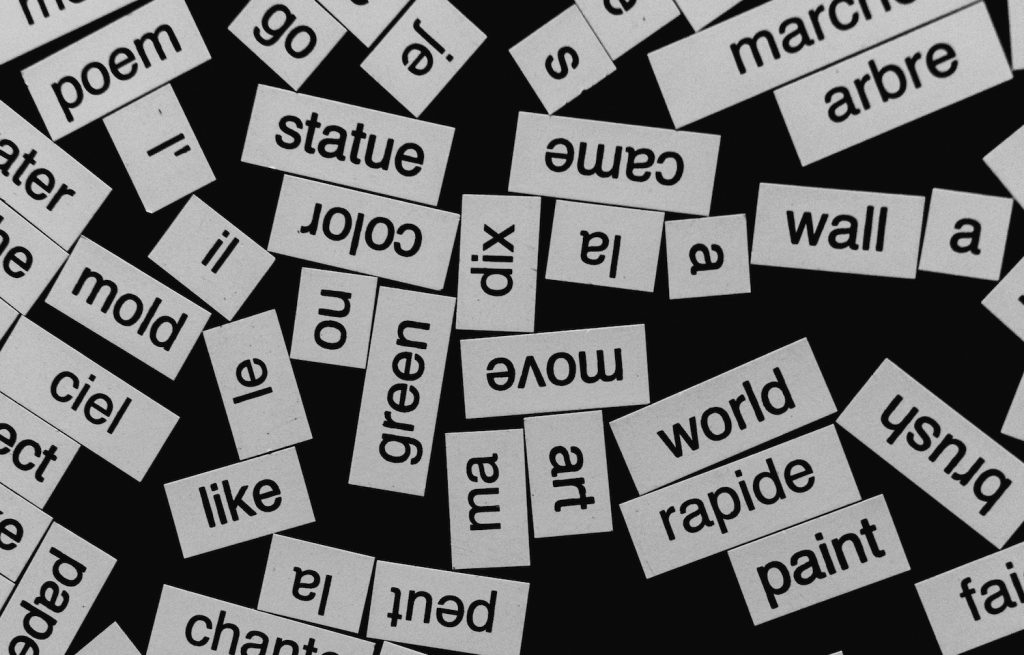by Seaira Lett, Linguistics
There are many misconceptions about the field of linguistics. People tend to lump it in with the humanities, assuming that it must be similar to literature or modern languages and cultures. Even if you explain linguistics as “the scientific study of language,” this does not mean much to people who have not studied it. I think it is difficult to imagine how language can be scientific, since we associate language in school with reading and writing or grammar lessons. However, language is an essential human behavior, and all humans (under normal circumstances) possess a wealth of complex and unconscious knowledge about the language(s) they have acquired. Importantly, this does not refer to the rules you learn in school, like spelling or when to use whom. Instead, this refers to rules you learn implicitly, like that it’s acceptable to shorten going to to gonna in I’m gonna eat tacos tonight but not *I’m gonna the mall.
Linguistics is in fact a social science (FYI, the Science Council defines science as the pursuit of knowledge using objective and empirical methods). In particular, generative syntax, the topic of the writing-intensive course that all linguistics majors are required to take, involves studying sentence structure and identifying patterns and rules. In the course, students are provided with ‘data puzzles’ consisting of sentences or smaller phrases, usually from English but also from languages such as Indonesian and German. Students are expected to analyze the data, whether it’s from a language they speak fluently or one that they have never seen before. The ability to analyze data from a wide range of languages is a skill that is essential for linguists to develop.

For example, the data below shows simple declarative sentences in English. Can you come up with an analysis of English sentence structure based solely on the data provided?
(1) Dogs play.
(2) The girl ate a muffin.
(3) Cute kittens have blue eyes.
(4) She ran quickly.
In this data, we can see that sentences in English require at least a subject (e.g., Dogs in (1)) and a verb or predicate (e.g., play in (1)). Subjects always consist of a noun and its optional modifiers (e.g., adjectives; cute in (3)), meaning that we should consider them to be Noun Phrases (NPs). A verb may have an object (e.g., a muffin in (2)) or be followed by an adverb (e.g., quickly in (4)). Thus, we should consider the predicate to be a Verb Phrase (VP). In conclusion, a declarative sentence in English consists of a NP and a VP, in that order.
This is an extremely simplified version of a linguistics “write-up.” The data gets more complex as the semester goes on, with students having to explain phenomena like why verbs go in the middle of German main clauses (see lebt in (5)) but at the end of subordinate clauses (lebt in (6)).

The write-ups students produce include an analysis that accounts for the given data. Linguistics write-ups do not require a thesis statement, and the style can be considered a bit informal compared to other genres. Write-ups require students to explicitly refer to the data, make observations, and propose rules that account for these observations. These write-ups more closely resemble lab reports without the hypotheses or methods sections, or math proofs without the rigidity in argument structure.
This specialized writing style that does not quite fit in with other genres can be difficult for students to learn, and they also must “unlearn” some of their previous writing habits. For example, first-person pronouns are expected in linguistics. Additionally, you do not need to build up to the topic of the write-up in the introduction or relate it to real-world examples as is sometimes instructed. Instead, we expect students to jump right into the topic and communicate their analysis as clearly and directly as possible.
I love using my skills and experience to help students with their own journeys as linguists
It has been rewarding to guide students in learning how to do write-ups as the TA in the Generative Syntax course; I get to see them begin developing skills that I view as core to my work as a grad student in linguistics. Looking at datasets and coming up with rules that explain the patterns found was what drew me to this field, so I’m always eager for others to experience the satisfying feeling that it brings. Students from the course now view me as a mentor, and I have even been able to give some students advice about what classes to take next semester. I love using my skills and experience to help students with their own journeys as linguists, and I think that it is vital for undergrads to hear advice from grad students, who offer a different perspective from the advising they receive from faculty.